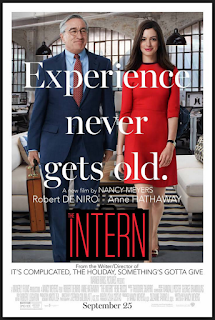Many are asking these days, “What is the greatest threat to the Church?” Typical responses to this question may focus on recent cultural advances within the homosexual community, the breakdown in the family, modern-day Christian persecutions -- both physical and prejudicial, the residual results from the removal of prayer/Bible reading from our public schools, the misunderstandings around the actual purpose of “The Separation of Church & State,” and the perceived influences of Darwinism or secular science.
If I were to single out our most dangerous threat, I think there’s an even more prevalent threat to the health of the church than any of the possibilities I just mentioned. And, the actual threat I have in mind is growing daily in its influence over all of us.
It’s truly an exciting time we live in, having such easy access to information; advances in research and education and much personal growth have been made possible in recent years. Make no mistake about it, humanity needs access to information & advances in knowledge. Yet, we live in an unprecedented era of information overload and instantaneous communication. One of the negative results of this constant bombardment of data is we are too easily distracted now.
Basically, the biggest threat to the church we currently face is that we have lost our ability to pay attention for any period of time. I think the theological term I’m searching for is “Space Cadets.”
For example, if you watch Cable News you’ll notice how a talkinghead throws out questions to their guests, expecting an immediate answer from people who haven't had time to think through the issue or meditate over a good answer. While their “expert” is cobbling together an incomplete answer based on the freshest news of the hour, across the bottom of the TV screen scrolls an endless stream of Stock Reports, weather updates, and miscellaneous news reports from the four corners of the world. And for us, the audience, we get bored and distracted if the topic doesn’t change every 15 seconds. Worse yet, a poor example has been set and now we too think we should have an instant opinion on every subject without taking the time to think about it.
In light of our shrinking attention span and our increasing appetite for the latest soundbite, the ancient Hebrew wisdom of Solomon is worth considering, “All things are full of weariness; a man cannot utter it; the eye is not satisfied with seeing, nor the ear filled with hearing. What has been is what will be, and what has been done is what will be done, and there is nothing new under the sun. Is there a thing of which it is said, “See, this is new”? It has been already in the ages before us.” (Ecclesiastes 1:8-10 ESV)
How have our weakened attention spans affected the church? Who reads their Bibles anymore? Who takes the time to think through the deeper questions of meaning, purpose, life, or eternity? Sermons lasting much more than 15 minutes, risk losing an entire audience. Beyond this, believers have a hard time concentrating on spiritual realities. We also have a hard time having a conversation with each other without checking our phones for Facebook updates or responding to text messages. I know, because I struggle with this too!
Why does this lack of attention even matter? It takes time to listen to God. Many Biblical characters traveled far and wide and spent many years seeking God’s direction. Spiritual maturity isn’t a microwaveable discipline, it’s more like crockpot cooking. With our shortened attention spans, our tendencies to be bored, and our desire for instant information, it will become harder to hear and to obey the voice of God.
What can we do to face this threat to our spiritual maturity? Recognize our distractions will only increase; there’s no escaping the impact of information overload on us. We also need to become comfortable saying, “I don’t know” and we need to allow ourselves space to say, “I need more time to think about this.”
Also, we need to realize that old information isn’t worthless just because it isn’t modern. I’m not saying doctors should go back to using leeches or we pretend to believe the earth is flat. But, just because a book is five years, fifty years, or fifteen hundred years old, it doesn’t mean it’s out of touch. Read and re-read the classics in Christian literature like the writings of C.S. Lewis, or going further back, Augustine.
Do yourself a huge favor, unplug periodically, take long walks with a loved one, set aside time to be contemplative, and read books written by people who are long gone -- books that are timeless and that can challenge you to live a life of substance. And in all of this, strive to listen to God’s still, quiet voice, which is stronger & wiser than the thunderous waves we are used to surfing.







